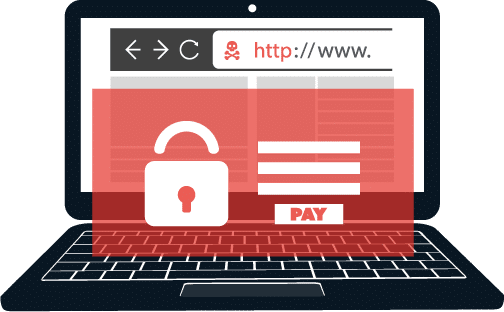Why You Need Cyber Insurance
Learn More
Spot On Coverage

We can find coverage for:




FINANCIAL PROTECTION:
Cyber insurance offers financial protection for businesses by covering the costs associated with investigating data breaches, notifying affected parties, paying legal fees, handling fines, and repairing or replacing damaged data or software.
LIABILITY PROTECTION:
Businesses may be held liable for damages resulting from a cyber incident, including lawsuits alleging negligence, privacy violations, or failure to protect sensitive information. Cyber insurance can cover legal defense costs and damages awarded to third parties in such lawsuits.
DATA BREACH RESPONSE:
Cyber insurance can assist in covering the expenses related to breach response which can be both costly and complex, including customer notification, credit monitoring services, public relations expenses, and crisis management to mitigate reputational damage.
COMPLIANCE REQUIREMENTS:
Michigan has implemented several laws and regulations concerning cybersecurity and data privacy. The Michigan Identity Theft Protection Act (ITPA) mandates businesses to safeguard personal information and requires notification to individuals in the event of a data breach. Additionally, Michigan requires businesses to notify affected individuals and the state attorney general about data breaches involving sensitive personal information, as stipulated by the Michigan Personal Data Breach Notification Law. Cyber insurance can help businesses meet their legal obligations by covering fines and penalties resulting from regulatory violations.
Standard Cyber Insurance Coverages:

Breach Costs and System Failure:
Covers costs to respond to a security breach, such as investigation, notification of affected parties, and offering support and credit monitoring services. Also, in the event of data theft or damage due to computer system failure, Cyber Insurance will help cover the expenses required to recreate or recover the data.

Cyber Extortion or Ransomware Attacks:
Ransomware attacks and other forms of cyber extortion are increasingly common threats to businesses. Cyber insurance can cover ransom payments and expenses related to negotiating with cybercriminals, enabling businesses to regain access to their systems and data quickly.

Cyber Crime:
This coverage protects against financial losses from social engineering, reverse social engineering, and funds transfer fraud. These crimes involve tricking individuals or organizations through electronic means, such as impersonating a boss, employee, vendor, or client, to deceive them into transferring money to an account controlled by the fraudster. (Social engineering is manipulating individuals to gain unauthorized access to information.)

Business Interruption:
This coverage compensates for the income lost if your company’s revenue is disrupted due to a technology failure resulting from malware, ransomware, or another malicious cyber incident. (Malware refers to malicious software that damages computers.)

Electronic Data Restoration:
This coverage comes into play when a hacker accesses your computer and deletes or corrupts your data, or when you accidentally download malware that causes data deletion or corruption. Cyber Insurance can help cover the costs of restoring your data.

Privacy Liability:
If your business faces a lawsuit due to a privacy breach, Cyber Insurance can offer legal defense for your business and coverage for settlements or damages.
Potential Savings to Explore:
Insurance discounts can differ depending on the insurance provider you select. It is important to note that not all carriers offer the same discounts.
Flexi-Bundle™ & Save:
Flexi-Bundle™ Discount: Combine up to four insurance products and select from up to four insurance carriers.
Frequently Asked Questions
Please Note:
At Insurish, we provide general information on insurance products to help you grasp their different aspects. It’s important to note that this information isn’t an insurance policy and doesn’t pertain to any specific carrier’s policy. It doesn’t alter any provisions, limitations, or exclusions expressly stated in an insurance policy. Descriptions of coverages, discounts, and features are concise. For a comprehensive understanding of specific policy details, we recommend reading the applicable policy and consulting an Insurish agent. Coverages and features vary by insurer and state and may not be available in all states. Coverage for accidents or losses depends on the terms and conditions of the actual insurance policy. References to premiums, losses, deductibles, and costs are illustrative and may not apply to your circumstances. Insurish is not liable for the content of third-party sites linked from this page.

